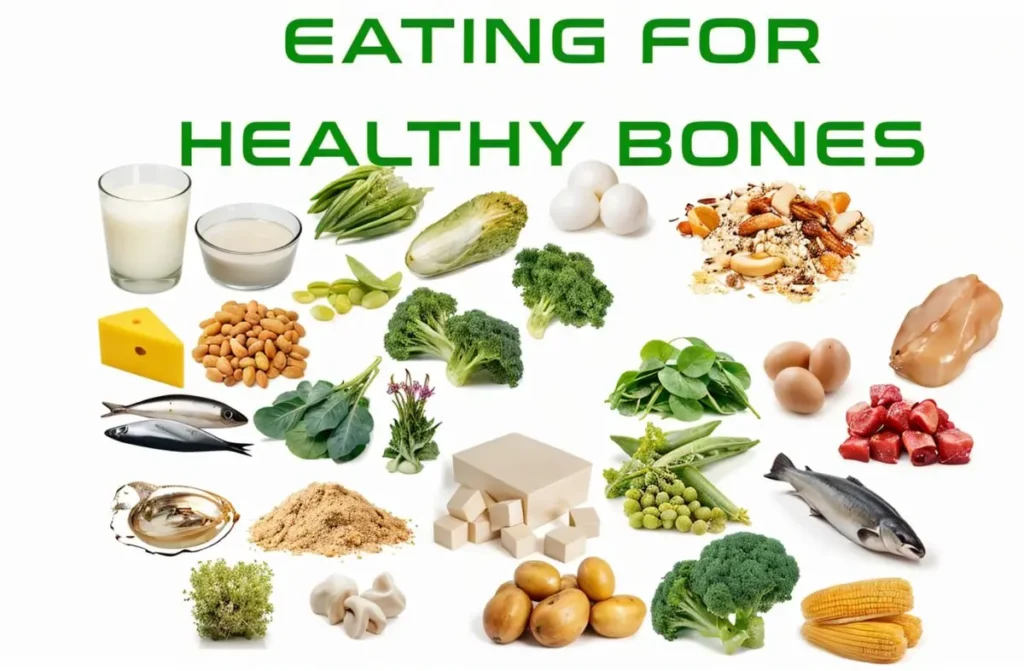How to improve bone health is a question many people ask as they age or face health challenges. Bones form the foundation of our body, providing structure and support. Maintaining strong and healthy bones is essential for a healthy lifestyle. At Deepa Hospital, we emphasize the importance of bone health and educate individuals on what supports bone health to keep them strong and functional. This blog will explore practical steps to improve bone health, focusing on natural methods, dietary tips, and lifestyle changes.
Why Is Bone Health Important?
How to improve bone health is crucial because our bones not only support our body but also protect vital organs, anchor muscles, and store calcium. At Deepa Hospital, we stress the importance of understanding why bone health is important to help you take proactive steps toward better health.
- Preventing Fractures and Osteoporosis
Strong bones reduce the risk of fractures and osteoporosis, especially as we age. Fragile bones can lead to mobility issues and prolonged recovery times, highlighting why bone health is important for maintaining independence. - Supporting Daily Activities
Healthy bones allow you to perform daily tasks with ease, from walking and running to carrying groceries. At Deepa Hospital, we focus on educating patients about what supports bone health to enhance overall quality of life.

What Affects Bone Health?
Understanding how to improve bone health involves knowing the factors that can weaken bones. At Deepa Hospital, we guide patients on minimizing these risks.
- Dietary Deficiencies
Not consuming enough calcium, vitamin D, or other essential nutrients directly affects bone density. These deficiencies are a common reason why bone health deteriorates. - Lifestyle Choices
Smoking, heavy drinking, and inactivity can all harm your bones. These habits reduce bone density and increase the risk of fractures. - Hormonal Changes
Hormonal imbalances, particularly in women after menopause, can lead to rapid bone loss. Knowing how to improve bone health in women becomes especially important during this phase of life.
What Can I Do to Keep My Bones Healthy?
Learning what support show to improve bone health is essential for preventing problems later. At Deepa Hospital, we encourage simple yet effective steps to maintain strong bones.
- Regular Exercise
Weight-bearing exercises like walking, running, and resistance training strengthen bones. These activities stimulate bone growth and reduce the risk of osteoporosis. - Balanced Diet
A diet rich in calcium, vitamin D, and other nutrients supports bone health. Foods like dairy, leafy greens, and fish are excellent choices. - Avoid Harmful Habits
Smoking and heavy drinking weaken bones. Quitting these habits can significantly improve bone health.
11 Ways to Increase Bone Density Naturally
- Weightlifting and Strength Training: Strength training promotes new bone formation and strengthens existing ones. Incorporating these exercises into your routine is a proven way to improve bone health naturally.
- Eat More Vegetables: Vegetables are packed with nutrients that support bone health. Their high vitamin C content helps stimulate bone-forming cells, contributing to stronger bones.
- Consume Calcium Throughout the Day: Calcium is the cornerstone of bone health. Spread your calcium intake across meals to maximize absorption and reduce bone loss over time.
- Eat Foods Rich in Vitamins D and K: Vitamin D helps your body absorb calcium, while vitamin K supports bone mineralization. Foods like fatty fish and fermented foods are excellent sources.
- Maintain a Moderate Weight: Excessive weight puts strain on bones, while being underweight can lead to bone loss. Maintaining a healthy weight helps strike the right balance for your bones.
- Avoid Low-Calorie Diets: Drastically cutting calories can reduce bone density. Ensure you consume enough calories to meet your body’s nutritional needs.
- Eat More Protein: Protein forms the building blocks of bone tissue. Including adequate protein in your diet supports bone repair and growth.
- Eat Foods Rich in Omega-3 Fatty Acids: Omega-3s are known for their anti-inflammatory properties, which help protect bones from damage. Fish like salmon and walnuts are excellent sources.
- Eat Foods Rich in Magnesium and Zinc: Magnesium and zinc are essential for bone mineralization. Nuts, seeds, and whole grains are great options to incorporate into your meals.
- Avoid Smoking: Smoking interferes with bone-building processes. Quitting this habit can significantly improve bone density over time.
- Avoid Heavy Drinking: Excessive alcohol consumption weakens bones. Moderation is key to maintaining healthy bone density.

Tips to Keep Your Bones Healthy
Maintaining strong bones is crucial for overall health and mobility. If you’re wondering how to improve bone health, following the right lifestyle choices can prevent osteoporosis and fractures.
1. Eat a Nutrient-Rich Diet
- Include calcium-rich foods like dairy, leafy greens, and nuts.
- Consume foods high in magnesium, phosphorus, and zinc.
2. Get Enough Vitamin D
- Why is vitamin D important for bone health? It helps the body absorb calcium efficiently.
- Sun exposure and vitamin D-rich foods like fish and fortified dairy support bone strength.
3. Engage in Weight-Bearing Exercises
- Walking, jogging, and strength training boost bone density.
- Resistance exercises improve bone strength over time.
4. Avoid Bone-Damaging Habits
- Limit alcohol and avoid smoking.
- Reduce excessive caffeine intake, which can deplete calcium.
5. Maintain a Healthy Lifestyle
- Get regular check-ups to monitor bone density.
- Stay hydrated and maintain a balanced weight.
Which Foods Increase Bone Density?
If you’re wondering how to improve bone health, focusing on your diet is key. At Deepa Hospital, we recommend nutrient-dense foods that support bone health and explain why bone health is important.
- Dairy Products
Milk, cheese, and yogurt are excellent sources of calcium, essential for strong bones. - Leafy Green Vegetables
Spinach, kale, and broccoli provide calcium, magnesium, and vitamin K, which are vital for bone health. - Fatty Fish
Salmon, mackerel, and tuna are rich in vitamin D and omega-3 fatty acids, making them bone-friendly choices. - Nuts and Seeds
Almonds, chia seeds, and flaxseeds are packed with magnesium and healthy fats that improve bone density.
How to Improve Bone Health in Women
how to improve bone health in women requires special attention, particularly during menopause when hormonal changes accelerate bone loss. At Deepa Hospital, we provide tailored advice on what supports bone health in women.
Hormone Therapy
For women experiencing menopause, hormone therapy can help slow down bone loss and alleviate other menopausal symptoms like hot flashes and mood swings. This treatment works by replenishing the estrogen levels that naturally decline during menopause, which is vital for maintaining bone density. However, hormone therapy isn’t suitable for everyone and must be tailored to individual health profiles under a doctor’s supervision.
Bone-Strengthening Exercises
Physical activity plays a crucial role in maintaining strong bones. Resistance training, such as weightlifting or using resistance bands, helps increase bone mass by promoting stress on bones that encourages new growth. Yoga and Pilates are excellent for improving balance, flexibility, and posture, reducing the risk of falls and fractures. Regular brisk walking, jogging, or swimming also supports overall bone health.
Calcium and Vitamin D Supplements
Calcium is essential for strong bones, while Vitamin D enhances calcium absorption in the body. When dietary intake through sources like dairy, leafy greens, or fortified foods is insufficient, supplements can help meet the recommended daily allowance. Healthcare providers may also suggest testing Vitamin D levels to determine the exact dosage needed, ensuring optimal bone health without risks like hypercalcemia.
Conclusion
How to improve bone health should be a priority for everyone, regardless of age or gender. By following the steps outlined in this guide, you can take control of your bone health and prevent future complications. At Deepa Hospital, we are committed to helping you achieve strong and healthy bones. Contact us today for personalized advice and support.

